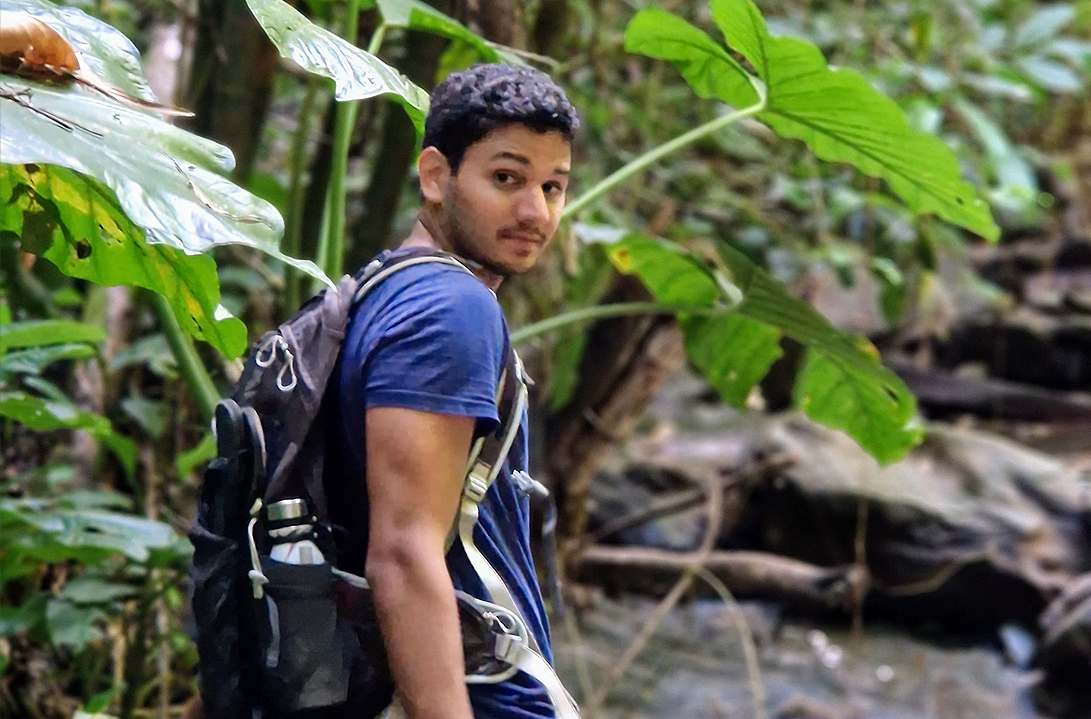
PhD Student
Tyler Murray-Ramcharan
PROFILE
Tyler Murray-Ramcharan is a DPhil (PhD) researcher at the University of Oxford and a member of the Wildlife Conservation Research Unit (WildCRU). His research explores the intersection of astrobiology and conservation biology, focusing on how advanced technologies developed for space exploration can be adapted for wildlife detection and conservation, and how conservation science can, in turn, refine these tools to enhance the search for life beyond Earth.
Tyler’s research is structured around four key areas: 1)Identifying and testing astrobiology tools suitable for detecting and monitoring wildlife; 2) Refining astrobiology tools through conservation-based field testing to improve planetary exploration and life-detection strategies; 3) Exploring the role of AI and machine learning in advancing wildlife detection and conservation technology; 4) Investigating the impact of space science and cosmic imagery on conservation attitudes and environmental engagement.
By evaluating technologies such as hyperspectral imaging, spectroscopic analysis, and machine learning, his work aims to enhance species detection, address conservation challenges such as human-wildlife conflict and poaching, and explore how conservation environments can serve as planetary analogues for astrobiology missions. His findings contribute to both conservation science and the search for extraterrestrial life.
Before his doctoral research, Tyler worked at the Joint Nature Conservation Committee (JNCC), where he played a key role in conservation initiatives across the Caribbean. His work involved designing nature-based solutions for disaster resilience, developing and implementing coral reef conservation strategies, and coordinating biodiversity projects aimed at safeguarding marine and terrestrial ecosystems.
He also applied GIS, Earth observation techniques, hydrological modelling, habitat restoration modelling, and ecosystem services evaluation to support economic assessments of conservation strategies. Engaging in high-level stakeholder discussions, he worked to ensure that scientific research translated into actionable policy and conservation planning.
Tyler has extensive experience in camera-trap research, including conducting a camera survey of ocelots in Trinidad’s forests to assess population density and ecological characteristics. Beyond field research, he has explored the use of machine learning for species detection, integrating custom transformer-based computer vision models and pre-existing AI-driven software tools to improve wildlife identification. His work in conservation technology bridges modern computational approaches with ecological research, demonstrating the power of AI in addressing conservation challenges.
At the heart of Tyler’s work is a deep passion for conservation, space science, and astrobiology. He is particularly interested in how astrobiology tools can transform wildlife monitoring while also leveraging conservation environments as testbeds for planetary science. His research reflects a broader vision—to strengthen interdisciplinary collaborations between conservation and space sciences, ensuring that advancements in one field can benefit the other.
Tyler is also committed to expanding research opportunities in Latin America and the Caribbean (LAC). As a scientist with regional ties, he hopes to contribute to the growth of conservation technology and planetary science initiatives in the LAC region, promoting research that is both globally impactful and locally driven.